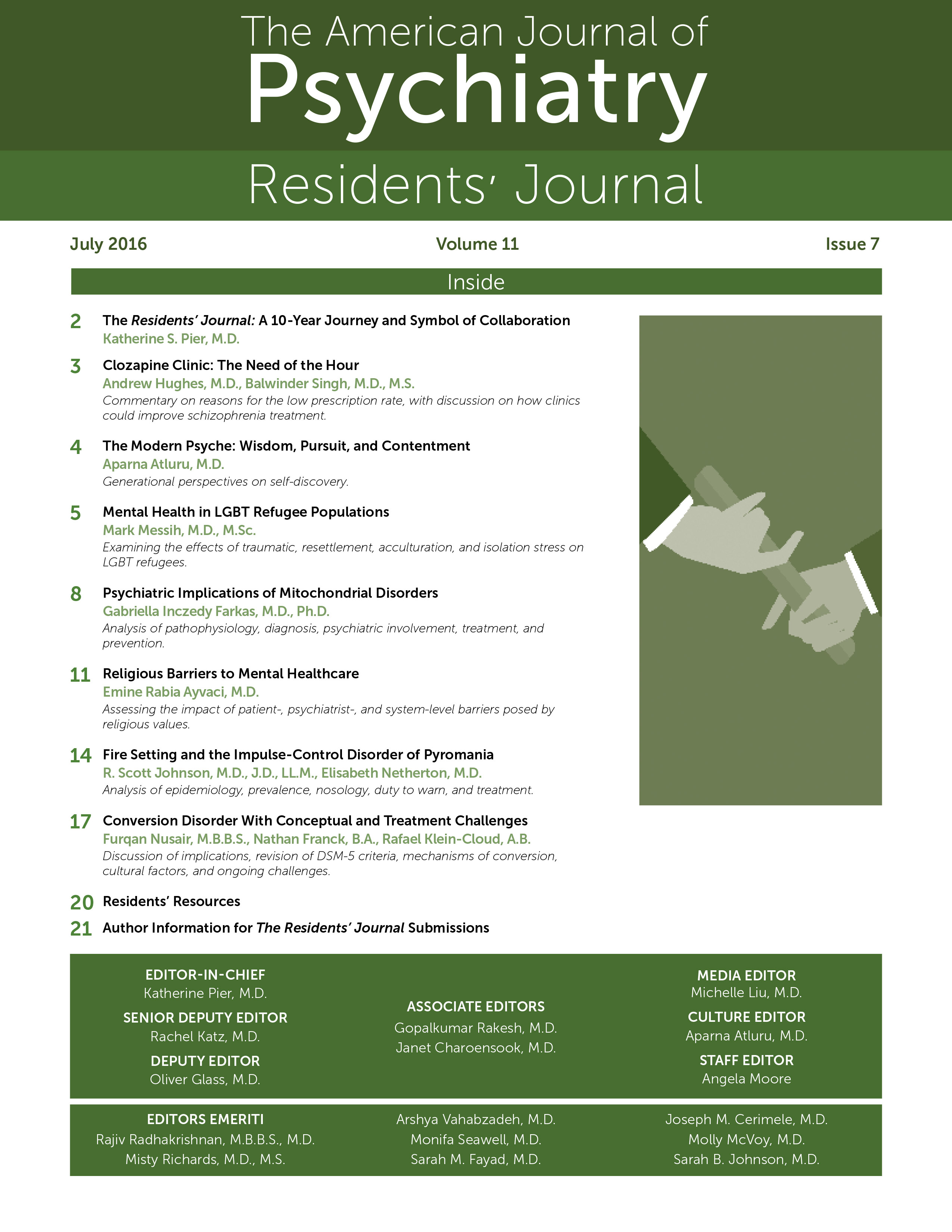Mental Health in LGBT Refugee Populations
| Type | Stressor | |
|---|---|---|
| Traumatic stress | War | Family/community violence |
| Torture | Flight and migration | |
| Rape | Poverty | |
| Forced displacement from home | Starvation | |
| Resettlement stress | Financial stressors | Lack of access to resources |
| Housing | Transportation difficulties | |
| Employment | Loss of pre-migration status | |
| Loss of community support | ||
| Acculturation stress | Problems fitting in at school | The necessity to translate for family members who are not fluent in English |
| Struggle to form an integrated identity including elements of the new culture and the culture of origin | Intergenerational conflicts over new and old cultural values | |
| Conflicts related to cultural misunderstandings | Concern of children “losing” their culture | |
| Isolation stress | Feelings of loneliness and loss of social support networks | Harassment from peers or law enforcement |
| Discrimination | Experiences with others who do not trust refugees | |
| Feelings of not “fitting in” with others | ||
Pre-Flight
| Pre-Flight/Migration | Post-Flight |
|---|---|
| Exposure to war | Loss of family members |
| State-sponsored violence | Prolonged separation |
| Oppression | Stress of adapting to a new culture |
| Torture | Low socioeconomic status and underemployment |
| Internment in refugee camps | Physical displacement outside one’s home country |
| Human trafficking |
Journey Into Exile
Post-Flight Trauma
The Claims Process
| Item |
|---|
| Establishing a sense of safety |
| Engendering tolerance of multiple self-identities |
| Preparing clients for trauma disclosure in the asylum-seeking process |
| Mitigating the risk of retraumatization inherent in the asylum-seeking process |
| Addressing cultural challenges to the utilization of psychotherapy |
| Empowering patients |
Conclusions
Key Points/Clinical Pearls
References
Information & Authors
Information
Published In
History
Authors
Metrics & Citations
Metrics
Citations
Export Citations
If you have the appropriate software installed, you can download article citation data to the citation manager of your choice. Simply select your manager software from the list below and click Download.
For more information or tips please see 'Downloading to a citation manager' in the Help menu.
View Options
View options
PDF/EPUB
View PDF/EPUBGet Access
Login options
Already a subscriber? Access your subscription through your login credentials or your institution for full access to this article.
Personal login Institutional Login Open Athens loginNot a subscriber?
PsychiatryOnline subscription options offer access to the DSM-5-TR® library, books, journals, CME, and patient resources. This all-in-one virtual library provides psychiatrists and mental health professionals with key resources for diagnosis, treatment, research, and professional development.
Need more help? PsychiatryOnline Customer Service may be reached by emailing [email protected] or by calling 800-368-5777 (in the U.S.) or 703-907-7322 (outside the U.S.).
